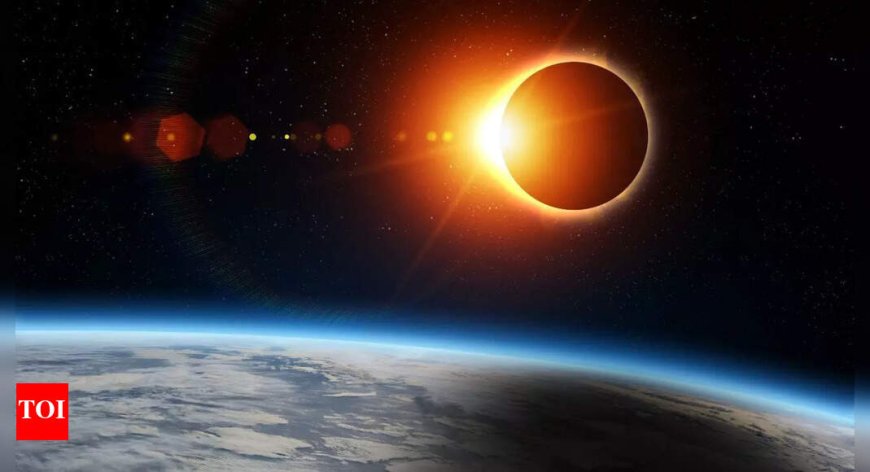What causes a solar eclipse? The science behind it
While this particular eclipse will not be visible from India, the scientific principles behind this event are worth exploring. Solar eclipses are some of the most awe-inspiring natural phenomena, but have you ever wondered why they happen? In this article, we delve into the science behind a solar eclipse, explaining how this rare event unfolds and the celestial movements that make it possible.

What Causes a Solar Eclipse? The Science Behind It
News by dharmyuddh.com
Understanding Solar Eclipses
A solar eclipse is a captivating astronomical event that occurs when the Moon passes between the Earth and the Sun, blocking all or part of the Sun's light. The causes of solar eclipses delve deep into the science of celestial mechanics, where the orbits and alignments of celestial bodies play a crucial role. Understanding these phenomena not only enriches our appreciation of the universe but also highlights the intricate dance of the Earth, Moon, and Sun.
Types of Solar Eclipses
There are three primary types of solar eclipses: total, partial, and annular. A total solar eclipse occurs when the Moon completely covers the Sun, casting a shadow on specific areas of the Earth. In contrast, a partial solar eclipse happens when only a part of the Sun is obscured. An annular solar eclipse is unique, where the Moon appears smaller than the Sun, leaving a ring-like appearance known as the "ring of fire." Each of these events provides a unique opportunity for scientists and sky gazers alike to observe the intricate relationships within our solar system.
The Science Behind Solar Eclipses
Solar eclipses are best understood through the lens of orbital dynamics. The Earth orbits the Sun, and while the Moon orbits the Earth, their relative positions can create this beautiful phenomenon. The alignment required for a solar eclipse is precise, making them relatively rare events that only occur during new moons when the Moon is positioned directly between the Earth and the Sun. This alignment is essential, as even slight deviations can prevent an eclipse from occurring.
Historical Significance of Solar Eclipses
Throughout history, solar eclipses have fascinated humanity. Ancient civilizations often viewed them as omens, leading to various interpretations and myths. In more recent times, scientific advancements have allowed us to study the solar atmosphere during total eclipses, providing insights into solar activity and its effects on Earth.
Conclusion
Solar eclipses are not only a testament to the wonders of our universe but also an opportunity for education and scientific exploration. By understanding the mechanics behind these celestial events, we can deepen our appreciation of the vast cosmos in which we reside. As we look forward to future solar eclipses, it is essential to think critically about their significance and the lessons they offer.
FAQs About Solar Eclipses
1. When is the next solar eclipse happening?
2. How can I safely view a solar eclipse?
3. What is the path of totality?
4. Are solar eclipses dangerous to look at?
5. How often do solar eclipses occur?
For more updates, visit dharmyuddh.com. Keywords: what causes a solar eclipse, science of solar eclipses, types of solar eclipses, total solar eclipse facts, solar eclipse phenomena, solar eclipse viewing tips, solar eclipse history, annular and partial eclipses, understanding solar eclipses, next solar eclipse date.







